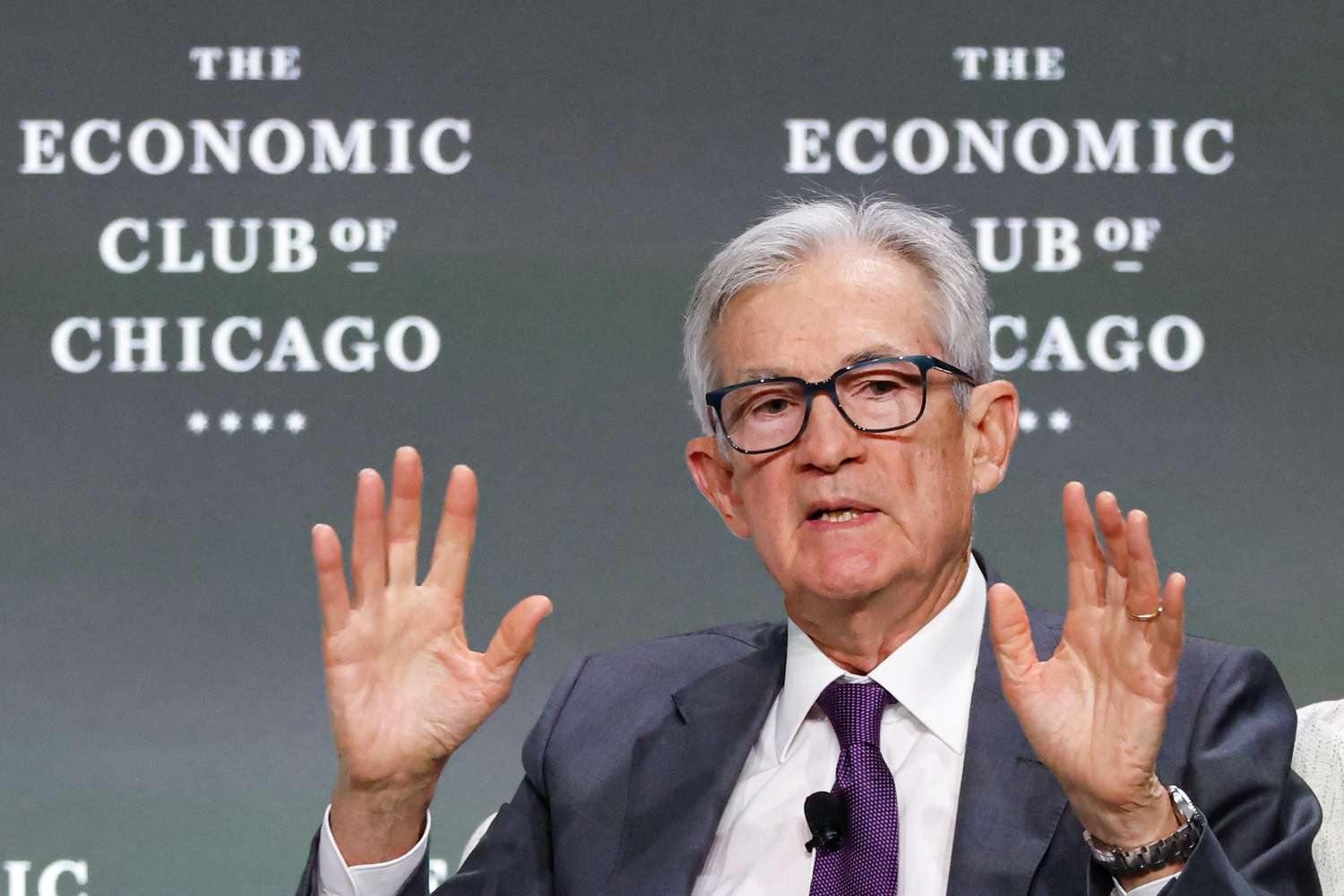Fed's Tariff Warning Shocks Global Markets

Federal Reserve Chair Jerome Powell has sounded a stark warning that President Trump’s tariffs are significantly larger than initially expected and could lead to higher inflation and slower economic growth. This challenging scenario now faces global financial markets already rattled by uncertainty.
Powell emphasised that the impact of tariffs would likely produce at least a temporary increase in inflation. He cautioned, however, that these effects could become more enduring depending on how quickly tariffs translate into higher consumer prices. Maintaining stable inflation expectations is vital, he stressed, highlighting the Fed's primary responsibility to ensure price stability. Without this, he argued, it becomes impossible to sustain strong employment levels.
The financial markets reacted swiftly to Powell's comments. Immediately following his remarks, the Dow Jones Industrial Average plunged 690 points, a drop of 1.7%. The S&P 500 fell 2.3%, and the Nasdaq, heavily weighted in tech stocks, suffered a significant 3.4% loss. Investors, particularly alarmed by Powell's unexpectedly hawkish tone, drove a selloff that underscored market anxieties surrounding President Trump's erratic trade policies. Businesses, too, are feeling the pinch, with unclear guidance contributing to volatility reminiscent of the pandemic era.
Economic Slowdown Risks
Concerns over the possible economic consequences of tariffs are deepening, with many analysts warning of stagflation—a challenging combination of inflation alongside economic stagnation. Forecasts for the US economy are increasingly gloomy. According to ICG projections, US growth could slow dramatically to between 0% and 0.5% by the end of 2025. The Wharton Budget Model painted an even bleaker long-term picture, suggesting tariffs might shave off as much as 6% from the US economy's overall size and reduce wages by around 5%. For the average middle-income household, this would mean a staggering lifetime loss of about $22,000.
The severity of these economic consequences will largely depend on how long the tariffs remain in place. In a relatively mild recession scenario, GDP could contract by approximately 1% by late 2025, coupled with a 20% market decline. However, a more severe recession—potentially triggered by retaliatory tariffs from major trading partners—could see GDP fall by 2.6%, with stock markets plunging by as much as 35%. The International Monetary Fund has similarly warned that a universal 10% increase in US tariffs, combined with retaliatory measures from Europe and China, could reduce US GDP by 1%. Le Monde characterised this as a major global economic slowdown, estimating an average purchasing power loss of $3,800 per American household, with the poorest suffering disproportionately.
The Fed's Difficult Balancing Act
Faced with such uncertainty, the Federal Reserve has adopted a cautious "wait-and-see" stance, closely monitoring economic data before making any decisive moves on interest rates. This marks a shift from the Fed’s previous practice of providing clear forward guidance. Powell explained that the central bank would await greater clarity on the economic impact of tariffs before adjusting monetary policy, signalling heightened uncertainty over the trajectory of inflation and growth.
This cautious approach places the Fed in a challenging position. Minneapolis Fed President Neel Kashkari highlighted this difficulty, noting that the Fed lacks tools to directly counteract the negative economic impacts of tariffs. Traditionally, the Fed’s instruments could address both inflation and employment simultaneously. However, the current situation, exacerbated by tariffs, means policymakers may now have to prioritise one mandate over the other.
Market Volatility Intensifies
The Fed’s cautious approach significantly affects market volatility. With unclear guidance from the central bank, financial markets experience increased uncertainty, leading investors to respond aggressively to each new economic report or statement from Fed officials. This heightened sensitivity makes economic data releases particularly influential, causing more substantial and frequent market fluctuations.
Bond markets, usually stable indicators, become particularly volatile as traders adjust expectations of future interest rate moves. Equities, notably technology stocks sensitive to economic shifts, face increased sell-offs triggered by Fed comments or data releases. This uncertainty also amplifies the influence of Fed communications, as investors dissect every statement or subtle shift in language, sometimes leading to exaggerated market responses.
The potential for unexpected Fed moves, or "Fed surprises," poses additional risks. Sudden policy shifts without clear forewarning could jolt markets, dramatically increasing volatility and adding further challenges for global investors and policymakers alike.
What's next?
Looking ahead, markets and investors will remain hyper-sensitive to economic data and Fed communications. With the Fed’s dual mandate under strain due to tariff-driven economic pressures, financial professionals will need to closely monitor not only economic indicators but also nuances in Fed rhetoric. Powell’s careful language will continue to hold substantial sway over market confidence, and any signs of inflationary pressure persisting could push the Fed towards decisive action sooner rather than later. Global markets, meanwhile, brace themselves for continued volatility as the tariff drama unfolds.
World Liberty Seeks Federal Trust Charter
World Liberty Financial, the crypto venture backed by the Trump family, has applied for a US national bank trust charter... Read more
Saudi Banks Tap Overseas Markets
Saudi Arabia’s banks are borrowing from international markets at their fastest pace on record, as lenders try to squar... Read more
Amazon Continues To Cut 16000 Gone
Amazon has announced plans to cut a further 16,000 roles from its corporate workforce, extending the cost and organisati... Read more
The UK May Have A Voice In Ai
Europe’s AI sector has grown accustomed to playing catch-up. Capital has flowed more slowly than in Silicon Valley, va... Read more
Musk Applies Pressure To BT
Britain’s broadband market has spent the past decade locked in a familiar pattern. Incumbents invested heavily in fibr... Read more
Blackrock Sees EMEA Moving Into Private Assets
BlackRock has warned that investors across Europe, the Middle East and Africa are reshaping portfolios in response to wh... Read more

